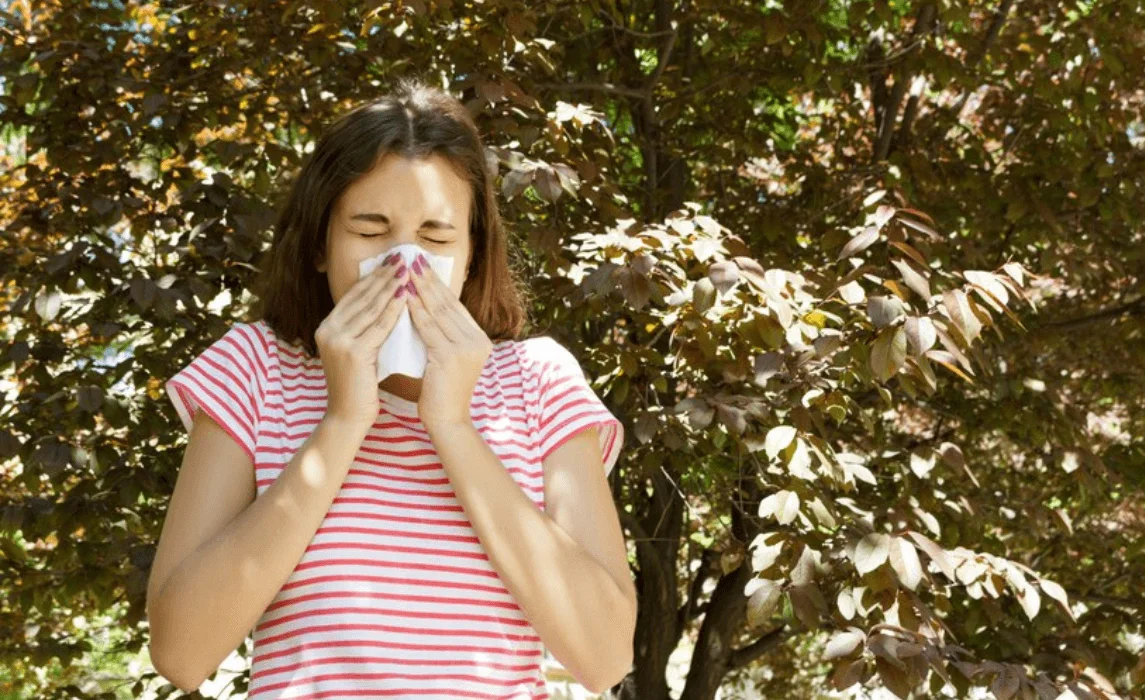When Is Allergy Season? A 2024 Allergy Guide to Seasonal Allergies and Allergy Season in New Jersey

Yes—finger plays, clapping games, and dance routines that use hand gestures all help. Combine rhythm and repetition for deeper learning.
Send home simple activity ideas, kits, or worksheets. Offer short instructions and encourage family involvement. Regular practice builds lasting progress.
Try origami, sticker scenes, stringing pasta, or painting with Q-tips. Crafts that use small pieces build precision and control.

Allergy season is a time of year that many dread, especially for those prone to sneezing, itchy eyes, and congestion triggered by pollen and other allergens. But when exactly is allergy season, and how does it affect residents of New Jersey in 2024? Whether you're dealing with spring's burst of tree pollen, summer's grass allergies, or fall's ragweed woes, understanding the timing and triggers of seasonal allergies can help you better prepare and manage your symptoms.
In this guide, we’ll break down everything you need to know about allergy season in New Jersey, including the key allergens for each season, tips to minimize exposure, and strategies to make this year’s allergy season more manageable. Let’s dive in and explore how to navigate the 2024 allergy season with confidence.
What is Allergy Season?
Allergy season refers to specific times of the year when allergens, such as pollen, mold, and dust mites, are most prevalent in the air. For those who suffer from allergies, these allergens can trigger a variety of symptoms, including sneezing, congestion, itchy eyes, and a runny nose. Allergy season can vary based on location, the type of allergens in the area, and the specific allergens that affect individuals.
In 2024, allergy sufferers are likely to experience seasonal changes that affect their symptoms. Let’s dive deeper into the seasonal allergies, the allergens that contribute to them, and the allergy season in New Jersey.
Types of Allergens by Season

Tree Pollen
Spring is the season when trees release their pollen, which can trigger allergies in many individuals. Trees such as oak, birch, cedar, and maple are among the most common culprits, with their pollen levels peaking early in the season, typically between March and May. These trees release fine, lightweight pollen that is easily carried by the wind, making it widespread and often difficult to avoid. People who are sensitive to tree pollen may experience symptoms like sneezing, runny nose, itchy eyes, and congestion as the trees bloom. This is the first wave of seasonal allergies, and individuals allergic to tree pollen are most affected during early spring.
Grass Pollen
Grass pollen becomes a major allergen in late spring and throughout the summer, with some of the most common grasses being ryegrass, Bermuda grass, Timothy grass, and Kentucky bluegrass. Grass pollen is typically larger and heavier than tree pollen, meaning it doesn't travel as far, but it still plays a significant role in allergy flare-ups. Grass pollen season tends to peak between May and June, and for individuals allergic to it, this period can bring symptoms such as sneezing, nasal congestion, and itchy or watery eyes. These symptoms are often worsened on windy days or when spending time outdoors in grassy areas. Unlike tree pollen, grass pollen is most active in the warmer months and can trigger allergies well into the summer.
Weed Pollen
In the fall, weed pollen becomes the primary allergen, with ragweed being the most notorious offender. Ragweed produces large quantities of pollen, which can travel hundreds of miles, affecting individuals even in areas far from where the weed grows. Ragweed pollen season usually begins in late summer, typically around mid-August, and can continue into October. For those with a sensitivity to ragweed, this is the peak of allergy season, with symptoms including sneezing, itchy eyes, a runny nose, and nasal congestion. Other weeds such as pigweed, sagebrush, and lamb’s quarters can also contribute to fall allergies, but ragweed is by far the most prevalent and allergenic.
Mold
Mold is another common allergen that thrives in moist, damp conditions, and its spores can trigger allergic reactions year-round. However, mold spores are particularly problematic in the fall due to the decaying leaves, moisture, and humidity that create ideal conditions for mold growth. Mold is often found in areas like basements, bathrooms, and wooded areas, and outdoor mold spores can peak in the late summer and fall months. Individuals allergic to mold may experience symptoms similar to other seasonal allergies, such as sneezing, coughing, congestion, and eye irritation. Because mold can grow indoors as well as outdoors, mold allergies can be troublesome in both environments during the fall season.
Common Allergy Symptoms

Seasonal allergies can cause a variety of symptoms, ranging from mild to severe. Some of the most common allergy symptoms include:
- Sneezing
- Nasal congestion
- Itchy, watery eyes
- Runny nose
- Post-nasal drip
- Coughing
- Fatigue
- Ear congestion
For allergy sufferers, these symptoms can make daily activities difficult, especially during peak allergy seasons. The best way to manage these symptoms is by understanding what triggers them and taking steps to minimize exposure.
Pollen Count: What Is It and How Does It Affect You?
The pollen count is a measure of the amount of pollen in the air at a given time. It is often reported in weather forecasts and can give you a good indication of how severe allergy season will be on a particular day. The pollen count is highest during the morning hours, especially between 5 a.m. and 10 a.m. During this time, pollen levels are most concentrated, making it important for allergy sufferers to limit outdoor activities when pollen counts are high.
The pollen count can vary depending on the type of pollen in the air. In New Jersey, tree pollen is prominent in the spring, grass pollen in the summer, and weed pollen in the fall. Mold spores can also be a significant allergen, especially during humid periods.
Treating Your Seasonal Allergy Symptoms

While it’s difficult to avoid allergens entirely, there are several ways to treat and manage your seasonal allergy symptoms.
Over-the-Counter Allergy Medications
Antihistamines, decongestants, and nasal sprays are some of the most common over-the-counter medications for managing allergy symptoms. These medications can help reduce inflammation and block the release of histamine, which causes the allergic reaction.
Allergy Shots
For individuals with severe seasonal allergies, allergy shots (immunotherapy) may be a solution. These shots gradually desensitize the immune system to specific allergens, reducing symptoms over time.
At-Home Allergy Test
An at-home allergy test can help identify which allergens are triggering your symptoms, allowing you to develop a personalized treatment plan. These tests are especially useful for people who want to understand the specific allergens affecting them without visiting an allergy doctor.
HEPA Filters and Air Purifiers
Using a HEPA filter in your home can help remove allergens like pollen, mold, and pet dander from the air. This is particularly helpful during allergy season when outdoor allergens can easily make their way indoors.
Nasal Irrigation
Nasal irrigation, such as using a saline rinse, can help clear allergens from the nasal passages. This method is especially effective for relieving nasal congestion caused by pollen and mold.
You May Also Like: How to Boost Your Immune System for Winter: Immune-Boosting Tips to Stay Healthy During Cold and Flu Season
Allergy Season in 2024: What to Expect
In 2024, the allergy season in New Jersey is expected to follow the typical pattern, with tree pollen starting in early spring, followed by grass pollen in the summer and ragweed in the fall. However, climate change has been affecting the timing and severity of allergy seasons. Longer, warmer seasons can lead to longer allergy periods, as plants bloom earlier and release pollen for a more extended period.
It’s important for allergy sufferers to stay informed about pollen counts, weather patterns, and other factors that might impact allergy season in 2024. With the right treatment plan and strategies to reduce exposure to allergens, you can better manage your symptoms and enjoy the seasons to come.
You May Also Like: Can Astigmatism Be Cured? Discover If There Are Cures for Astigmatism and Things You Should Know About The Condition
Frequently Asked Questions:
1. When does allergy season start in New Jersey?
Allergy season in New Jersey typically starts in early spring, around March, when tree pollen begins to circulate. Grass pollen peaks in the summer, while ragweed pollen and mold spores are prevalent in the fall.
2. How can I reduce exposure to allergens?
You can reduce exposure by staying indoors during peak pollen times (usually early mornings), using air purifiers, wearing sunglasses and masks, and keeping windows closed.
3. What is the best treatment for seasonal allergies?
Over-the-counter antihistamines, nasal sprays, and decongestants can help alleviate symptoms. Allergy shots and at-home allergy tests can provide longer-term solutions.
4. What is the pollen count?
The pollen count is a measure of the amount of pollen in the air. A high pollen count means higher concentrations of pollen, which can worsen allergy symptoms.
You May Also Like: Is Gluten Bad for You? Everything You Need To Know About Gluten




